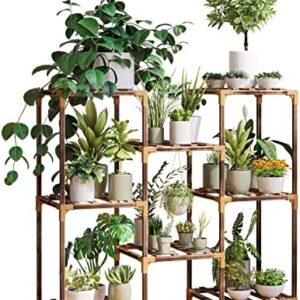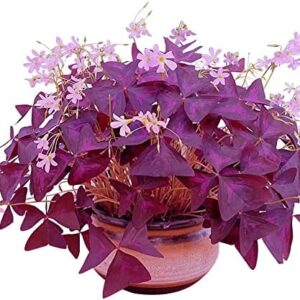Do you ever dream of having a lush, vibrant garden that bursts with life and color? Do you crave fresh, organic produce straight from your backyard? Well, you’re in luck because with a little bit of knowledge and a whole lot of love, you can grow your best garden yet.
Organic gardening is not just a trend or a fad – it’s a way of life that promotes sustainability, health, and harmony with nature. By eschewing harmful chemicals and synthetic fertilizers, organic gardening allows you to cultivate a garden that is not only beautiful but also safe for you and the environment.
So, how can you ensure that your garden thrives and flourishes organically? Here are some tips to help you grow your best garden yet:
1. Start with Healthy Soil
If you want a successful garden, you need to start with healthy soil. Good soil is the foundation of any garden, so make sure to enrich your soil with plenty of organic matter such as compost, manure, or leaf mulch. This will provide essential nutrients for your plants and improve soil structure, allowing for better water retention and drainage.
2. Choose the Right Plants
When selecting plants for your garden, be mindful of your location, climate, and soil type. Opt for native plants or varieties that are well-suited to your growing conditions to ensure they thrive. Additionally, consider planting a diverse range of flowers, fruits, and vegetables to attract beneficial insects, birds, and pollinators to your garden.
3. Practice Crop Rotation
Crop rotation is a technique that involves planting different crops in the same space each year to prevent the buildup of pests and diseases. By rotating your crops, you can maintain soil fertility, reduce the risk of plant diseases, and improve overall garden health. Make sure to plan out your crop rotation schedule in advance to ensure a successful harvest.
4. Embrace Companion Planting
Companion planting is the practice of growing certain plants together to benefit each other in some way. For example, planting marigolds alongside tomatoes can help repel pests, while growing beans near corn can improve soil fertility. By strategically arranging your plants in the garden, you can create a harmonious ecosystem that promotes growth and resilience.
5. Use Natural Pest Control Methods
Instead of reaching for harmful pesticides and insecticides, try using natural pest control methods to protect your garden. Introduce beneficial insects like ladybugs and lacewings to prey on garden pests, or use homemade remedies such as neem oil or garlic spray to deter unwanted insects. By working with nature rather than against it, you can maintain a healthy balance in your garden.
6. Water Wisely
Proper watering is essential for a successful garden, but it’s important to water wisely to conserve resources and prevent water waste. Water your plants deeply and infrequently to encourage strong root growth, and consider using a drip irrigation system or rain barrels to collect and distribute water efficiently. Mulching around your plants can also help retain moisture and reduce evaporation.
7. Practice Organic Weed Control
Weeds are a gardener’s nemesis, but you don’t have to resort to toxic herbicides to keep them at bay. Instead, use organic weed control methods such as hand-weeding, mulching, or smothering weeds with newspaper or cardboard. By staying on top of weed management, you can prevent weeds from competing with your plants for water, nutrients, and sunlight.
8. Feed Your Plants Naturally
Plants need nourishment to thrive, so make sure to feed them regularly with organic fertilizers. Compost, worm castings, seaweed extract, and fish emulsion are all excellent natural fertilizers that provide essential nutrients for healthy plant growth. Avoid using synthetic fertilizers, as they can harm beneficial soil organisms and leach into groundwater.
9. Practice Sustainable Gardening
In addition to growing your garden organically, consider implementing sustainable gardening practices to reduce your environmental impact. Use compost bins to recycle kitchen scraps and yard waste, conserve water through rainwater harvesting and drought-tolerant landscaping, and create habitat for pollinators and wildlife in your garden. By making eco-friendly choices, you can create a garden that nourishes both the earth and your soul.
10. Stay Curious and Keep Learning
Gardening is a journey of discovery, so don’t be afraid to experiment, make mistakes, and learn from your experiences. Stay curious and keep learning about different plants, techniques, and strategies to improve your gardening skills and create a thriving garden. Join a local gardening club, attend workshops, or simply observe nature in your garden to deepen your understanding and appreciation of the natural world.
In conclusion, growing your best garden yet is within reach when you embrace the principles of organic gardening. By nourishing your soil, choosing the right plants, practicing crop rotation, companion planting, and natural pest control methods, you can create a garden that is not only beautiful but also sustainable and healthy. Remember to water wisely, feed your plants naturally, practice organic weed control, and embrace sustainable gardening practices to reduce your environmental impact. And most importantly, stay curious and keep learning to cultivate a garden that brings joy, beauty, and abundance into your life. Happy gardening!






